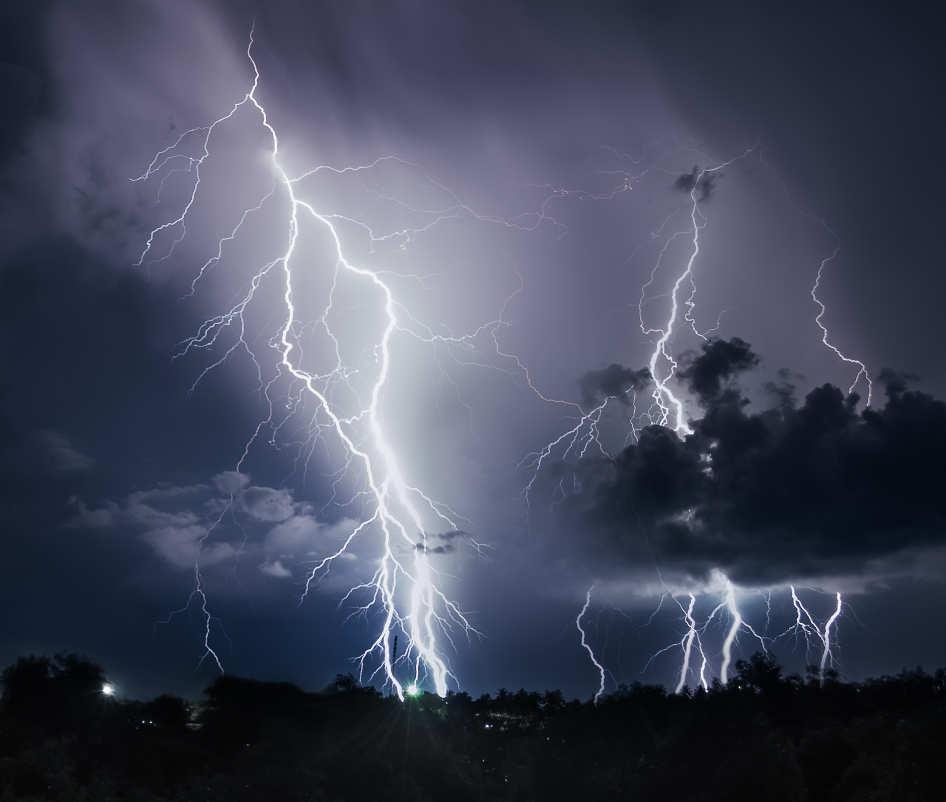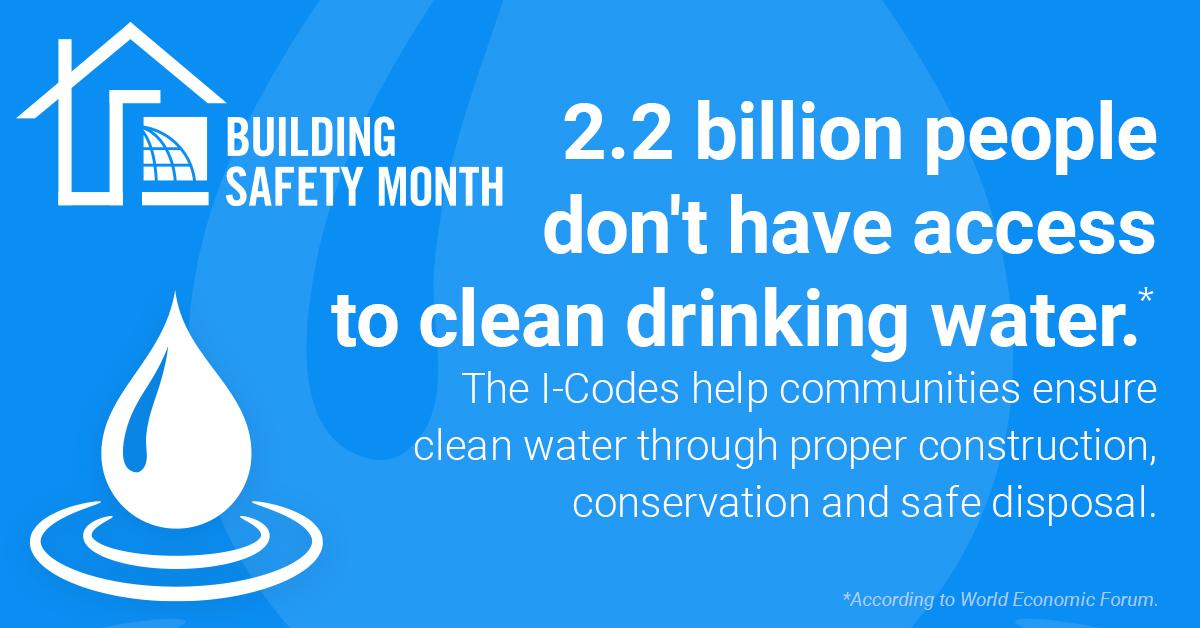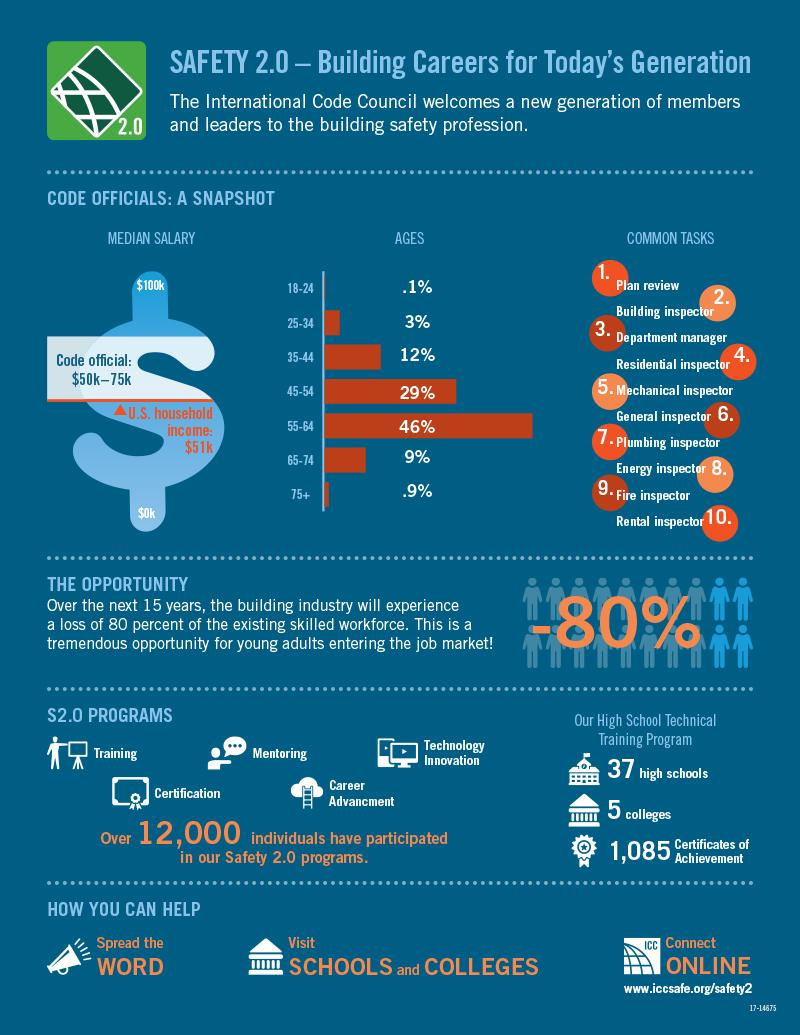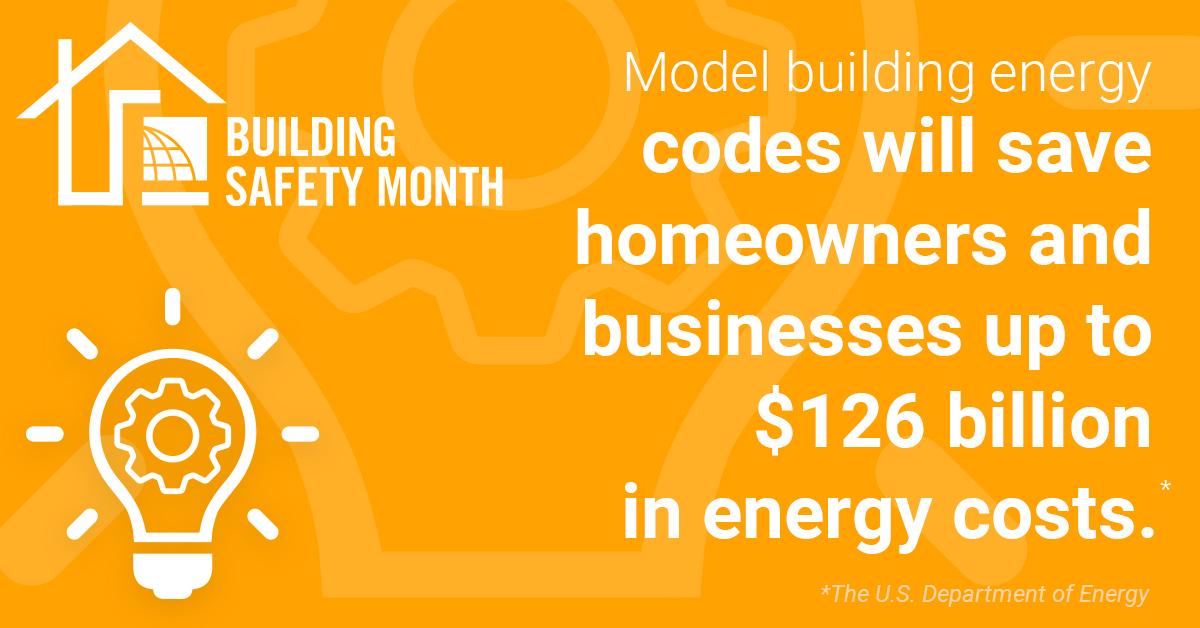Building Safety Month Articles

Week 4: Disaster Preparedness
Week Four of Building Safety Month Is Disaster Preparedness
Hurricane season is almost here (June 1- November 30th), and the Prince William County Department of Development Services wants to share some tips to prepare.
- Develop a home action plan and share it with everyone in your family, so you will know where to go if an evacuation is called. Identify at least two exit routes from your home or neighborhood to a designated meeting place for your family. Plan for your pets as many shelters will not accept them.
- Create a disaster supply kit that will allow you to remain in your home after a disaster or for use after evacuating to a safer location. Be sure the necessities in your kit are fresh and restored as necessary.
- Stay tuned to radio, TV, and NOAA Weather Radio for official updates and critical life-saving weather information. Remember, reception is usually best if placed near a window.
- Flooded roads could have significant dangers hidden by floodwaters. Never drive through floodwaters or on flooded roads. Do not attempt to cross a flowing stream. It takes only six inches of fast-flowing water to sweep you off your feet and two feet of water to move an SUV-sized vehicle.
- Secure lawn furniture and any other loose outdoor items that can become windborne and can cause injury or damage during storms with high winds. Don't forget trash cans, grills, toys, and potted plants.
- Use Surge Protective Devices (SPD) in your home to protect electronic appliances from all but the most severe electrical surges or direct strikes.
- Remove fine (dead grass, leaves, etc.) and coarse fuels (dead twigs, branches, etc.) within 30 feet of a building to create a survivable space in case of wildfire. Be sure to remove dry leaf and pine litter from roofs, rain gutters, decks, and walkways.
You can find more information on disaster preparedness at https://www.fema.gov/

Week 3: Water Safety
Clean water is the world’s most precious commodity. Even though 70 percent of our planet is covered with water, less than one percent is drinkable. According to World Health Organization estimates as of June 2019, 785 million people lacked even basic drinking water service.
Protection of the water supply used for drinking, cooking, washing, and bathing is one of the most critical health and safety protection requirements of the plumbing code. History has many examples of local and widespread occurrences of sickness and disease caused by not safeguarding the water supply. Cross-connections are the links through which contamination can enter a potable water supply. The contaminant enters the potable water supply when the pressure of the polluted source exceeds the pressure of the potable source. The action may be called “back siphonage” or “backpressure.”
Code officials are vigilant protectors of our water supply here in Prince William County. Because of their dedicated service, you can turn on the tap in your home and draw sufficient, clean water. The plumbing code intends to eliminate cross-connections or prevent backflow where cross-connections cannot be stopped.
What types of situations can residents and businesses encounter backflow?
• Irrigation systems (backflow of irrigation water into the potable water system through the sprinkler and emitter and leaks in the irrigation piping);
• Sillcocks, hose bibbs, wall hydrants, and other openings with a hose connection (backflow of unsanitary water or liquid through the open end of the hose).
• Toilet tanks (unapproved tank fill valves). • Sinks and lavatories (unapproved air gap).
• Coffee machines directly connected to the water supply (backflow of coffee into the water supply).
• Soft drink dispensing machines (backflow of carbon dioxide gas (CO2) into copper water supply line).
For more information about plumbing code for your business or residence, visit our site at:
https://www.pwcva.gov/department/development-services

Week 2: Training the Next Generation
Protecting the Public Every Day
Training the Next Generation of First Preventers
Well-trained, motivated building safety professionals are vital to creating and maintaining a successful build environment. Training is crucial because it helps code officials avoid mistakes and accidents and properly enforce the code. The building safety field encompasses a wide gamut of specialties and offers many excellent career opportunities that contribute to the safety of the build environment.
According to a survey conducted by the National Institute of Building Sciences, the building industry will lose 80 percent of the existing skilled workforce over the next several years. The entire building industry, including code officials, is looking at a severe workforce shortage of qualified candidates.
Building safety professionals play a significant role in keeping the public safe. They ensure that all buildings, including homes, businesses, and places of public assembly, are built to required building safety codes, which address structural stability, fire safety, exits, sanitation, electricity, energy efficiency, and more. These building safety professionals are responsible for protecting public health, safety, and welfare through effective enforcement of the Virginia Uniform Statewide Building Code (USBC). Prince William County Department of Development Services is tasked with enforcing these state-mandated regulations through plan review and inspections.
Building safety professionals are an essential part of the public safety equation. Whether it’s a building inspector, fire marshal, structural engineer, plan reviewer, electrical inspector, plumbing inspector, permit technician, or building safety official, they all work towards the common mission to prevent harm by ensuring compliance with building safety codes.
As such, training the next generation is essential to saving lives, protecting property, and reducing recovery costs often paid for by taxpayer dollars. Prince William County Department of Development Services strives to continue creating and staffing quality inspectors and plan reviewers through several processes:
- Offering “On the Job Training” helping as inspectors and plan reviewers go through state training. Each trade (plumbing, electric, etc.) has its own class for state certifications
- Helping them get their state certifications by passing ICC exams
- Continuing education - Code update classes for all every time a new USBC code is adopted.
Prince William County is a leader in the Building Safety industry, supporting the state academy with instructors in every trade, assisting the state by providing classes, not just for PWC but all jurisdictions. This helps produce inspectors for the entire Commonwealth of Virginia. In addition, PWC has staff members that are part of the ICC code adoption process and the NFPA electrical code process.
Haywood Kines, Development Services Project Manager, has been with PWC for 22 years. He sees Prince William County Department of Development Services as “One of the best in the State of Virginia.” because of their contributions to training for the inspectors, the support they provide for the Commonwealth, and their commitment to leadership in the industry.
To learn more about careers in code administration, visit www.iccsafe.org or https://www.governmentjobs.com/careers/pwcgov

Week 1: Innovation
Prince William County Department of Development Services Presents Building Safety Month
Prevent, Prepare, Protect
May is Building Safety Month: a worldwide campaign presented by the International Code Council, its members, and partners to promote building safety. This year’s campaign, “Prevent, Prepare, Protect. Building Codes Save,” will be held virtually this year, raising awareness about the importance of building codes in ensuring safety in the spaces in which we live, work, and play.
As we prepare ourselves for the increased severity and frequency of natural disasters, building safety is even more critical. Disaster mitigation through the adoption and enforcement of building codes is one of the best ways for communities to prepare and protect against future disasters. Homes and buildings built in compliance with building safety codes and the officials who enforce the regulations are essential to helping communities minimize the risks of death, injury, and property damage in the event of a disaster.
This first week we discuss innovation. How is Prince William County using innovation as it conducts business? 2020 certainly brought new challenges, and as such, innovation was a necessary part of adapting. Development Services utilized interactive inspections and video walkthroughs to help keep building inspections moving forward. Covid left us all unsure & vulnerable & with vulnerability comes creativity, innovation & change.”
Another innovation, the EPortal a one-stop-shop for homeowners and contractors, was being worked on before the pandemic but was fast-tracked during Covid-19, as was eplan review, which helps to streamline the submittal process. These business processes and technology improvements were critical during 2020. Allowing the customer to do as much as possible and making the experience smoother leads to a better customer experience.
County Building Official Eric Mays believes in the Kaizen strategy of continuous improvement. Kaizen, a Japanese term that means “change for the better,” is a philosophy that implements small, incremental changes that lead to an overall improvement in user experience and production. “Refuse to be involved in change that is not sustainable,” says Mays. “When creating a process, don’t just make it better; make it sustainable.” The power of EPortal is not only that it is sustainable but can be built on. (no pun intended) The vision, according to Mays is to create a “virtual customer service counter” where all processes would be tied together. With 24/7 access, there would be no waiting in line, and all parts of the process would be accessible virtually.
Continuous review of the customer service experience and implementing innovation are just a few ways that Prince William County helps its residents and businesses through the necessary building codes that protect our community.